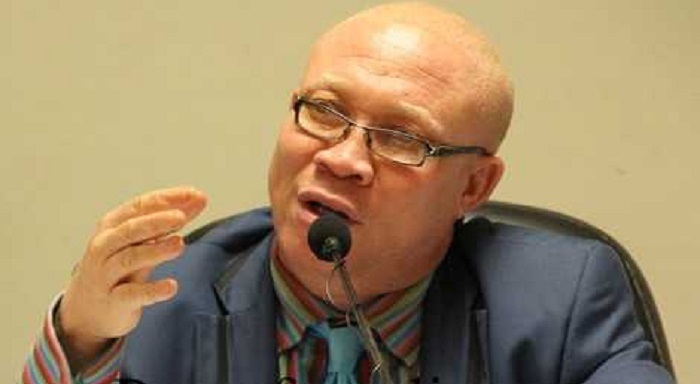The Executive Secretary of the National Coalition for Proper Human Sexual Rights and Family Values has described the Supreme Court’s dismissal of Richard Dela Sky’s petition against the Human Sexual Rights and Family Values Bill as a straightforward and proper application of the law.
The Supreme Court unanimously dismissed a petition filed by journalist and lawyer Richard Dela Sky, which sought to challenge the constitutionality of the Human Sexual Rights and Family Values Bill.
The seven-member panel, led by Justice Lovelace Avril Johnson rejected the petition, upholding the constitutionality of the legislative process for the proposed anti-LGBTQI legislation.
In an interview on Joy FM's Middaynews on Wednesday, December 18, Moses Foh Amoaning noted that the case presented before the Supreme Court was premature.
The Human Sexual Rights and Family Values Bill, which has triggered intense public discourse, aims to criminalize activities related to LGBTQI advocacy, including funding, promotion, and indirect support.
Mr Foh Amoaning weighed in on the decision, describing the ruling as a clear application of constitutional principles. According to him, the court’s decision reinforces the procedural safeguards that govern the legislative process in Ghana.
“This case was premature,” Mr. Foh-Amoaning stated. “The Constitution is clear that the Supreme Court’s original jurisdiction can only be invoked in matters involving anything done or purported to have been done under an enactment. A bill is not an enactment—it is merely a proposal. Until it is signed into law, it does not meet the constitutional threshold for judicial review.”
He added that the legal framework provides specific processes for a bill to become law, including its passage through Parliament, the President’s consideration, and potential referral to the Council of State. If the President refuses to assent, Parliament may override the decision with a two-thirds majority vote, after which the bill becomes law.
“The proper time to challenge the constitutionality of this bill will be after it has been signed into law,” Mr. Foh-Amoaning explained. “At this stage, any action against it is premature.”
Latest Stories
-
‘When the lights go off, people must move’ – Energy Minister warns ECG over ‘unacceptable’ delays
1 minute -
Energy Minister faults ECGs communication breakdown, calls for overhaul in customer service
32 minutes -
‘We inherited a crisis’ – Energy Minister pins load shedding on NPP administration
1 hour -
‘I know it’s not easy, but I’m not here to complain’ – Energy Minister vows to fix power woes
2 hours -
‘When the lights go out, so does public patience’ – Energy Minister admits fault, promises fix
2 hours -
Youth urged to take advantage of opportunities in rice value chain
3 hours -
‘I cannot accept that lights go off when it rains; that makes no sense,’ – Energy Minister
5 hours -
Apple referred for possible criminal contempt investigation
6 hours -
Sinner considered quitting during doping case
6 hours -
BoG is not injecting significant amount of dollars to support cedis stability – Dr Johnson Asiama
6 hours -
Court remands four into NACOC’s custody for alleged cocaine smuggling
6 hours -
Warmest day of year as UK temperature hits 24.9C
7 hours -
David Ofosu-Dorte challenges VRA to ignite Ghana’s industrial future
7 hours -
Sahel Confederation hails Morocco’s non-interference and economic lifeline
7 hours -
Man accused of double murder admits killing one man
7 hours

